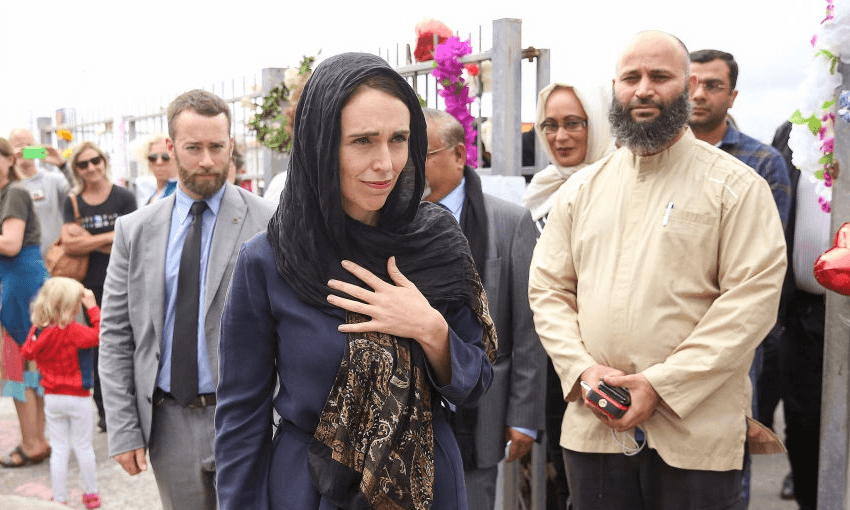Some have argued that non-Muslim women wearing headscarves today is a tokenistic gesture, or that the hijab itself is oppressive to women. Mahvash Ali, an associate producer for The Project NZ on Three, has this to say in response.
Every time I get a call I stick my phone in my hijab and go about my business. My colleagues at The Project love it. I call it my Muslim bluetooth.
Once, a dear non-Muslim friend even tied a tea towel around his head and tried to stick his phone underneath. Hilarious, and a miserable fail. But no, I did not mind. Yes, I laughed till my stomach hurt. So, dear Kiwis, be assured when you put a scarf on your head Muslims will love it. Just don’t try it with a tea towel please.
I’ve been asked so many times if it will be hurtful to the community for non-Muslims to wear it. I am no scholar, but I can promise you it will not be disrespectful. Jacinda Ardern got it right.
The Arabic word hijab refers to an attitude of modesty. Muslims, men and women, are expected to be modest in their dressing and attitude. Covering up so that most of our bodies don’t show is part of that attitude. Lowering our gaze when talking to the opposite sex is the same.
There is no prescribed single way of covering up, which is why you see so many versions of the hijab, from a loose headscarf to the burqa. I like to pin mine and wear it tight because it’s just easier (also, Muslim bluetooth).
And here’s a newsflash – most Muslim men also have their heads covered. Many older men use something like a skull cap, although I’ve seen younger men use soft caps for the same purpose. Kids these days, I tell you.
So that brings us to another question, is the headscarf a symbol of oppression? Oh dear Lord, where do we start.
First, let’s not shy away from the uncomfortable. There are countries around the world where women are forced to wear it. And of course the hijab represents oppression for them.
But Muslim women in New Zealand choose to wear a headscarf. So for us, it is a symbol of liberation. It’s also a way of being recognised as a Muslim. In a world where everyone looks the same, it gives us Muslim sisters an identity.
So today, I am going to pack all my headscarves and take them to work. Because everyone at work will wear one. And when we observe two minutes of silence, we will all be the same. My pain will be no different from yours, because I am you and you are me.
And I won’t even mind if you drop today’s lunch on my good scarf (but please be careful).
Last Friday’s events will forever be etched in our memories. But, they have also brought us together. We have changed for the better. Had those 50 people not been taken away from us so brutally we would never be having these conversations.
Muslims consider those people martyrs and to us they are alive, just not in the flesh.
They have made all of us human again.



